Stranded Marine Mammal Rescue - Global
When the tide is low, the stakes are high for marine mammalsreport a stranding
report a stranding
If you find a live or dead stranded marine mammal on Cape Cod or southeastern MA, please call IFAW’s marine mammal rescue hotline:
508-743-9548
Media, please contact press@ifaw.org. The hotline is for stranding reports only.
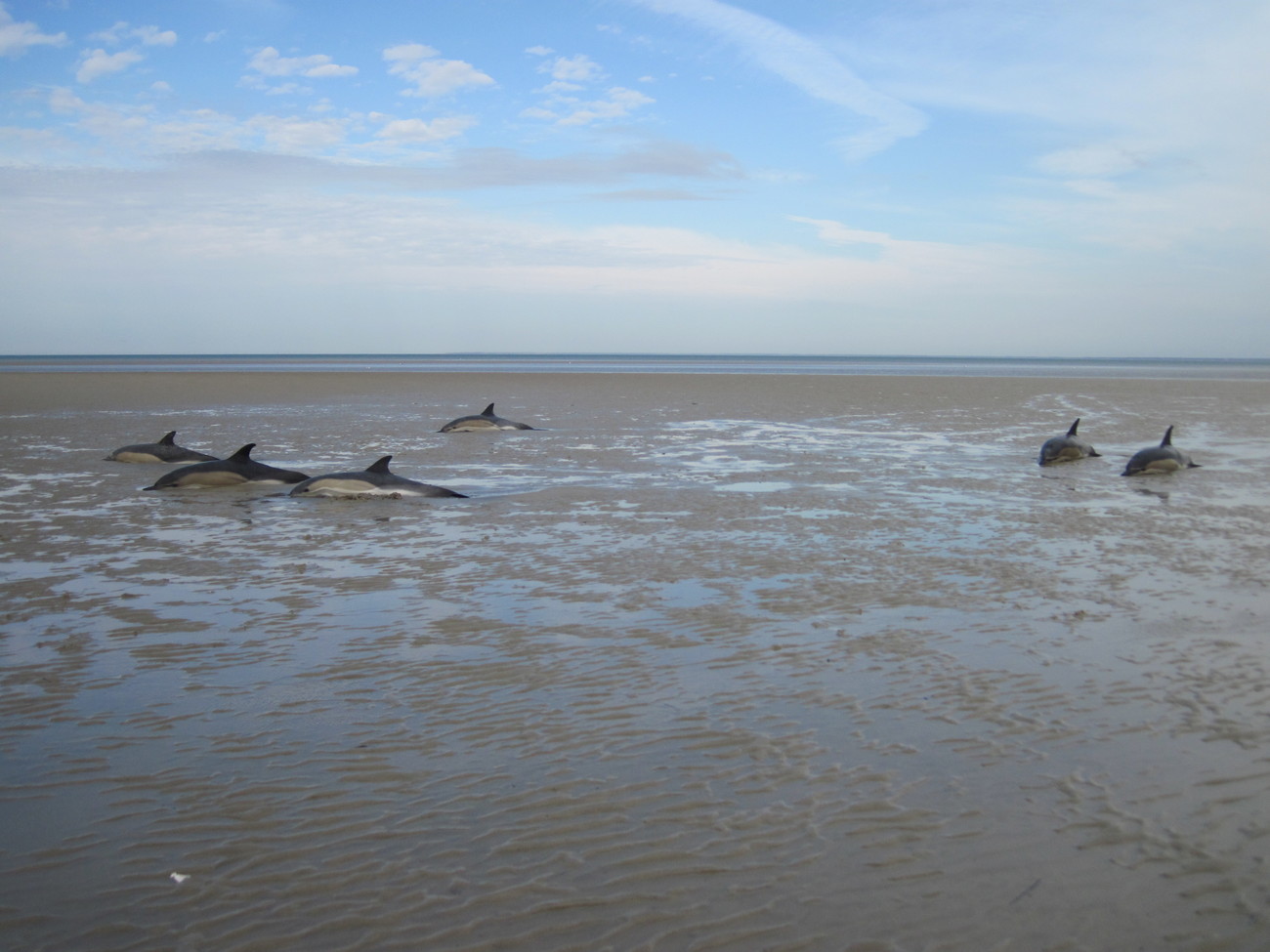
What is a stranded marine mammal? A whale, dolphin, porpoise or seal that is:
- Deceased and on a beach or floating
- Alive, onshore and unable to return to the water or in need of medical attention
- In a location that is hazardous or unusual for that species
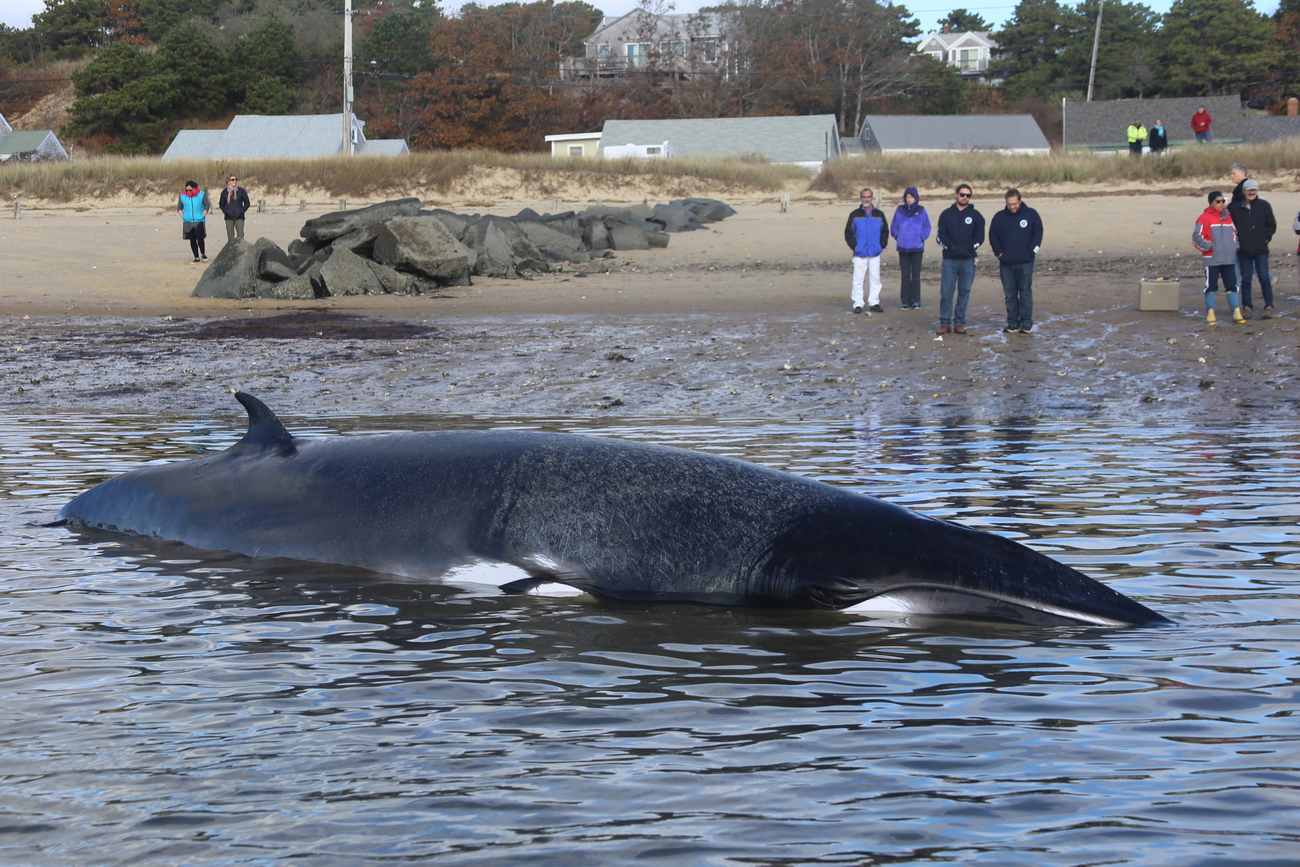
What to do if you find a stranded animal:
- Keep a safe distance (150 feet) from any seal, dolphin or whale
- Call our stranding hotline at 508-743-9548
- See below for contact information of other response agencies
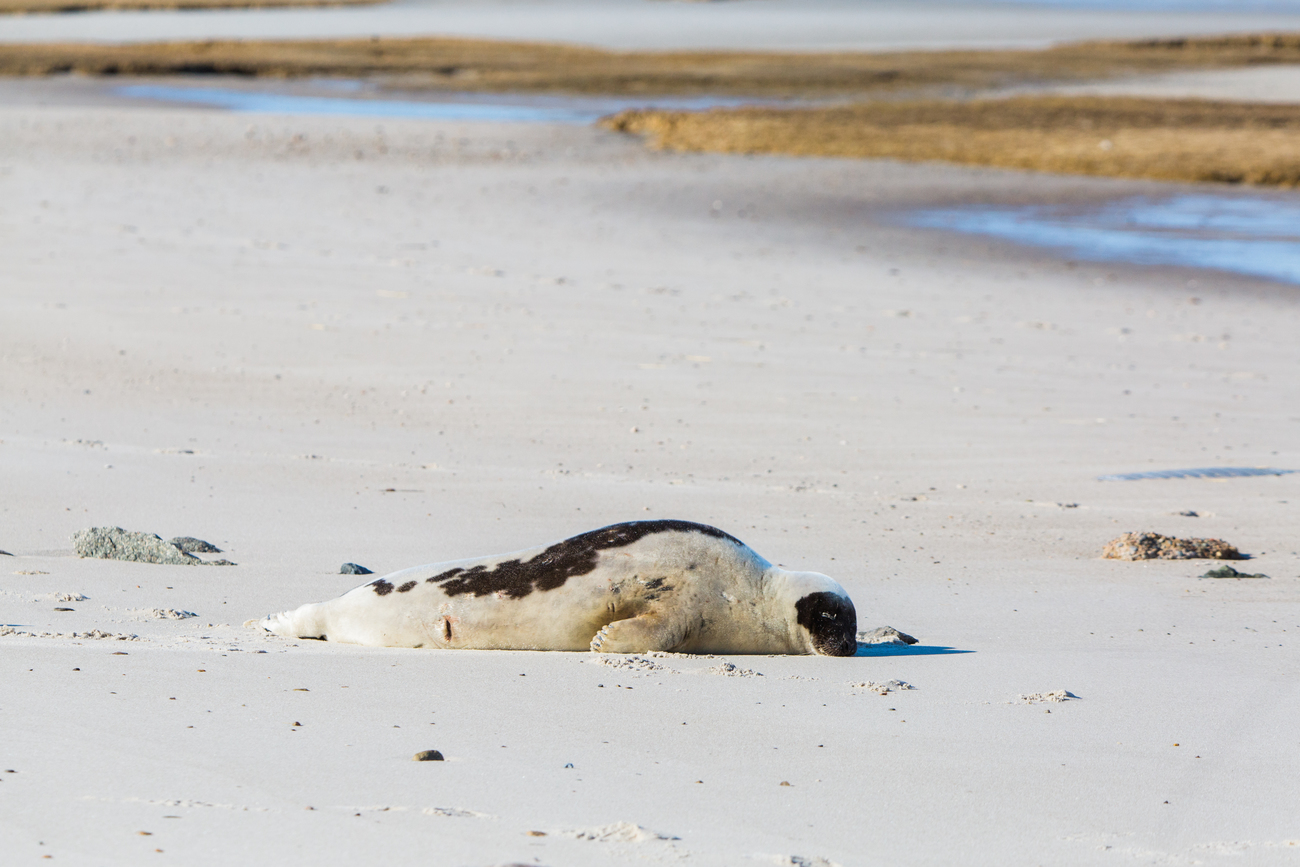
Is it normal for a seal to be alone on the beach?
- Not all seals are stranded and need help. Resting alone on land is a normal behavior—even for young pups.
- In some cases, resting seals may be in need of help due to illness or injury, or because people are causing them stress.
- Be kind and keep distance in mind—at least 150 ft.
- Keep dogs leashed.
- Call the hotline at 508-743-9548 to notify our team so we can assess the animal.
Here are some ways you can help!
Keeping a safe distance from wildlife (150 feet) and keeping dogs leashed are important ways to help minimize stress to the animals and keep yourself and your pets safe.
Dolphins and whales can survive some time out of water—they are mammals like us and breathe air. Do not drag or push them back in to the water and do not pour water on them. They likely need medical care and our trained responders need to be able to help them. We have a team of experts and a custom-built mobile veterinary clinic to rescue stranded small cetaceans. Notifying our team immediately helps us get to the animals faster and gives the animals their best chance of survival!
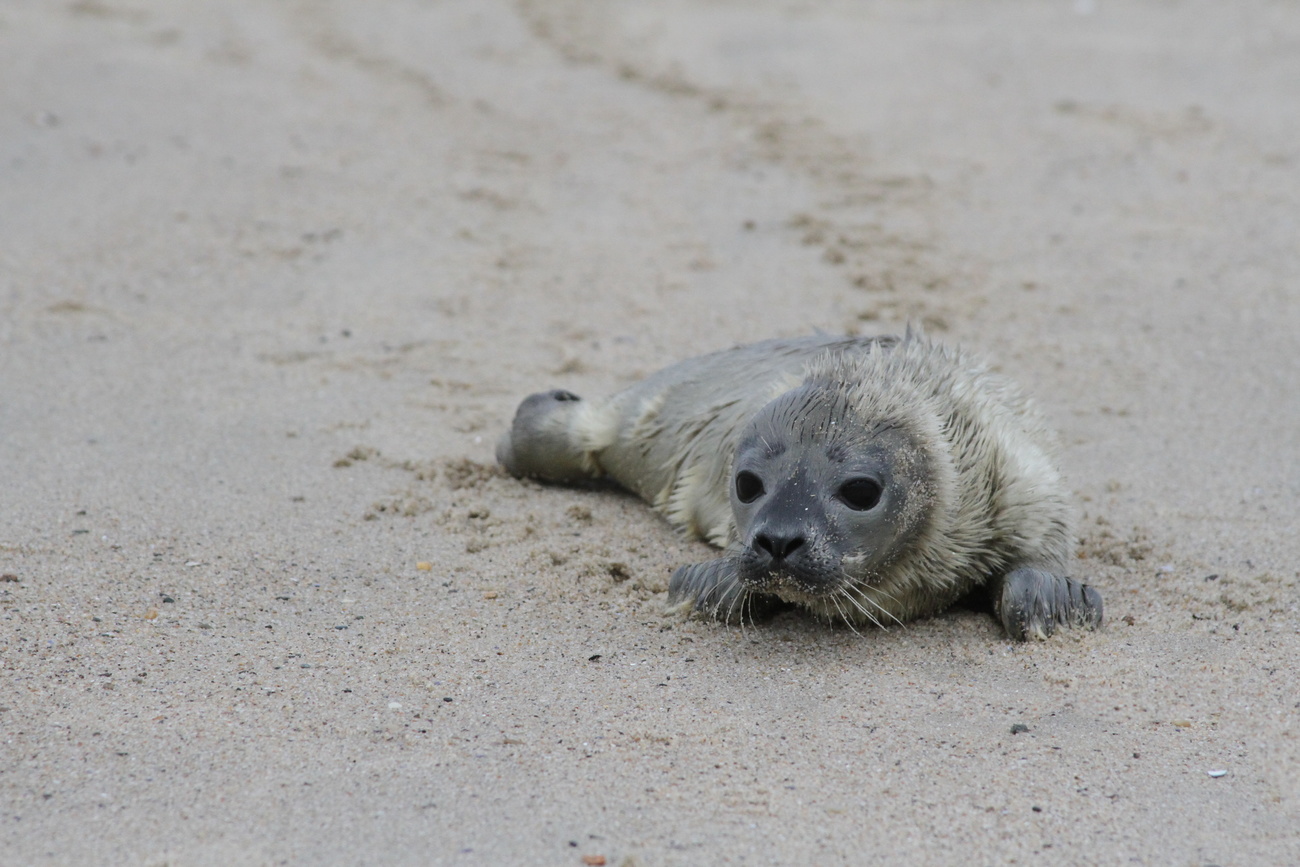
Seals normally spend time on the beach resting and it is normal for most seals to be alone—even young pups. Some seal species leave their newborn pups on the beach while they forage at sea, so it is important to leave them alone so the mothers can come back to retrieve them. More often, the young seals on the beach have already been weaned and are independent, and are just taking a break from swimming and warming up in the sun. Do not approach, drag or try to force them back in to the water and do not pour water on them. They are likely just resting and will return to the water when they are ready. But, some seals may be sick, entangled, or injured and do need help, so please call the hotline if you believe the seal may be in need of assistance. Our trained responders can assess the situation and determine what course of action is needed.
Our team has been responding to strandings along more than 700 miles of coastline in southeastern Massachusetts since 1998. We work in a global hotspot for dolphin strandings that has a wide range of species and a large number of marine mammals that strand alive each year. We average over 260 stranded animals per year and have responded to more than 5,600 animal cases. We are a small staff supported by a wonderful team of professionally trained volunteers and interns.
Learn more about our volunteer and internship opportunities.
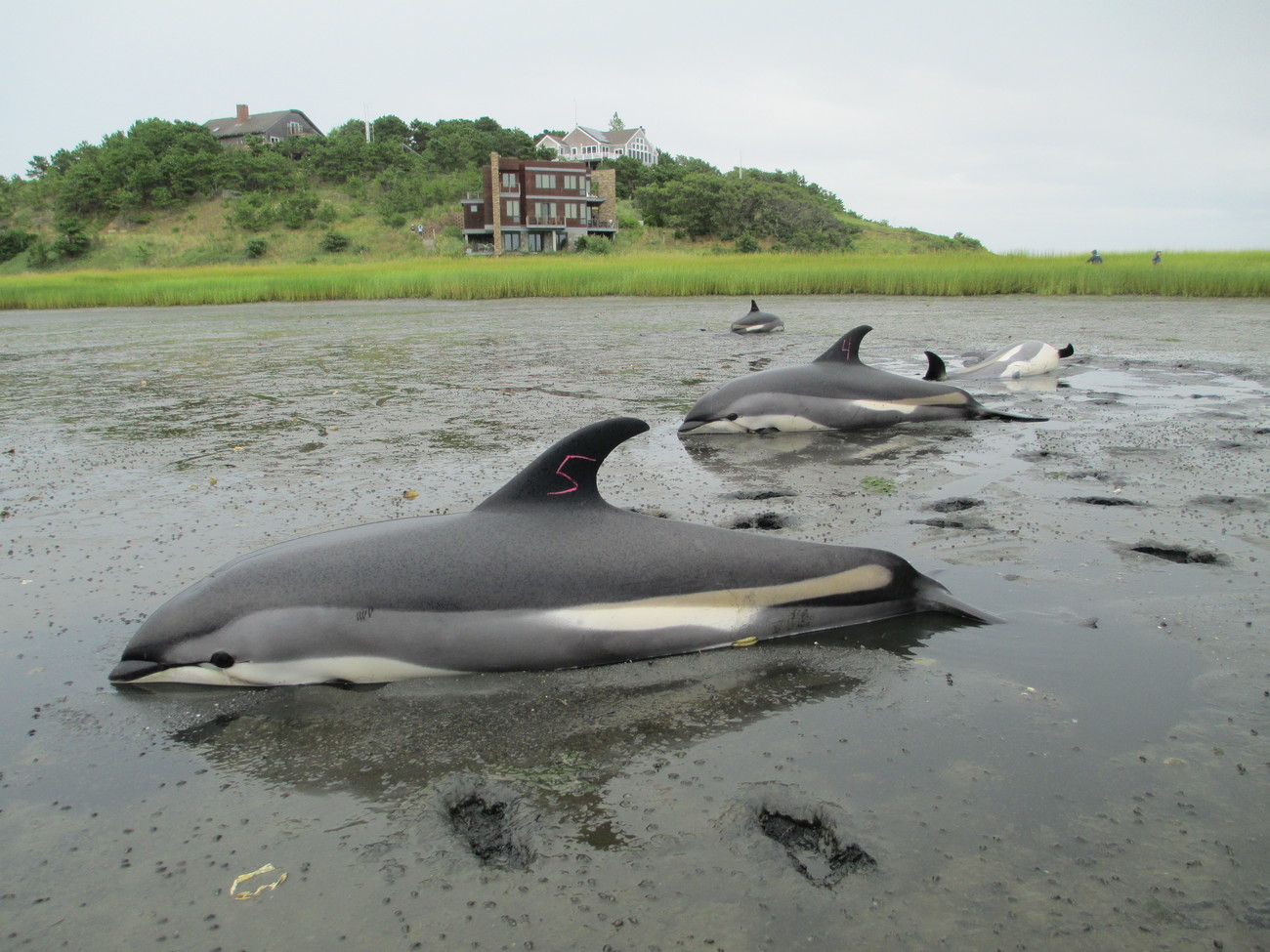
What causes dolphins to strand on the beaches of Cape Cod?
- Natural occurrence: Strandings have been historically documented and occur all over the world. Cape Cod is a known hotspot for live dolphin strandings, particularly mass strandings.
- Landmass shape: Cape Cod is shaped like a hook encircling Cape Cod Bay, which makes navigating back to open ocean difficult.
- Tidal fluctuations: Some areas experience nearly 13 feet of tidal change. This, combined with large areas of shallow sand flats, causes dolphins to become trapped when the tide falls.
- Social structure: Some cetacean species have strong social bonds and groups will stick together even if one individual becomes sick or injured.
- Injured or sick: Sick or injured dolphins may become separated from the group, be too weak to swim against currents or become disoriented and unable to navigate.
- Weather: Extreme winds and weather could push animals closer to shore than they normally travel.
- Human impacts: Entanglements in fishing gear, vessel strikes, acoustic disturbances caused by undersea noise or other human activities could cause dolphins to strand.
Additional local contacts and reporting information for marine life:
Entangled whales and sea turtles (live and dead)
- Center for Coastal Studies Hotline: 1-800-900-3622
- To learn more, visit https://coastalstudies.org/
Stranded sea turtles (live and dead)
- Mass Audubon: 1-508-349-2615 x6104
- To learn more, visit https://www.massaudubon.org
Live North Atlantic right whale sightings
- Virginia to Maine: 1-866-755-6622
- Florida to North Carolina: 1-877-942-5343
- To learn more, visit https://www.fisheries.noaa.gov/species/north-atlantic-right-whale
Stranded animals outside of IFAW’s response area
- To report strandings in other US areas, go to: https://www.fisheries.noaa.gov/report
- To report strandings outside of the US, go to: https://globalstrandingnetwork.com/
Ocean sunfish (Mola mola) and live basking sharks
- New England Coastal Wildlife Alliance: 1-508-566-0009
- To learn more, visit http://www.necwa.org/
Related content